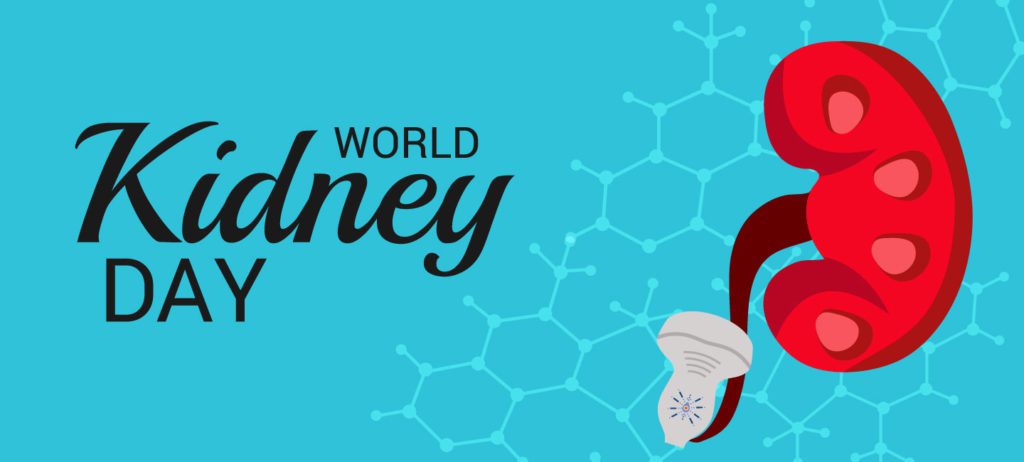Chronic Kidney Disease (CKD) is common among adults in the United States; however, many of those impacted are unaware of their condition.
According to the Centers for Disease Control and Prevention (CDC), kidney diseases are the ninth leading cause of death in the United States. Additionally, of the approximately 37 million American’s estimated to have CKD, one in two people with low kidney function who are not on dialysis do not know that they have CKD.

The medical community is working together to help bring awareness to the importance of kidney health to help combat this condition and change the narrative of these statistics. From launching new initiatives, conducting research, sharing knowledge during the diagnostic process, and more, we are all working together to decrease kidney disease frequency and its impact.
One such initiative was launched in 2006 by the International Society of Nephrology (ISN) and the International Federation of Kidney Foundations (IFKF). World Kidney Day is a global campaign that’s observed annually on the second Thursday of March each year. Its mission is to “raise awareness of the importance of our kidneys to our overall health and to reduce the frequency and impact of kidney disease and its associated health problems worldwide.”
Each year the campaign addresses a particular theme to expand the conversation. This year’s theme is “Living Well with Kidney Disease.” Its mission is to enhance the education and awareness surrounding symptom management and patient empowerment. On March 11, we’re coming together as a community to advance efforts that encourage long-term participation from patients and their care partners.
The innovative approach of this year’s theme challenges the status quo of the current system of treating and managing kidney diseases. In doing so, it highlights the importance of patients feeling empowered by their treatment, that their symptoms are being effectively managed, and motivated to become active participants in their treatment.
2021’s World Kidney Day is striving to provide more knowledge and enable individuals impacted by CKD. This push for an increased patient-centeredness approach in research, practice, and policy aligns with our values at the Point-of-Care Ultrasound Certification Academy™.
Point-of-care ultrasound (POCUS) enhances the diagnostic processes of medical professionals, which allows them to provide a more timely and efficient level of care to their patients. To support the community, we offer certification opportunities, provide educational resources, and join fellow medical members in using POCUS to improve global health and provide remarkable care to our patients.
Health issues, especially in regards to more severe conditions like CKD, are intimidating for patients. One diagnosis has the power to drastically change a person’s life, robbing them of the normal they knew and throwing them into a new world of uncertainties.
As individual medical professionals and as a collective community, we have the power to work together to ensure we support our patients and their care systems. The support, resources, and information we provide patients with can empower them to maintain a sense of control and identity.
Technologies like POCUS help us achieve this goal. In the nephrological diagnostic process, ultrasound has proved to be an effective tool when applied at the point of care. Especially when combined with patient history and a physical exam, POCUS has proven to improve diagnostic accuracy.
As we celebrate World Kidney Day this year, we recognize the significance of supporting patients in managing their symptoms and participating in their treatment. The POCUS Certification Academy is proud to work alongside our fellow healthcare professionals in creating a community that provides high-quality care while further supporting the individuals we care for.
_____
Want to learn more about the impact POCUS is having on patient care? Visit our education and training resources page for more in-depth insights. Also, check out our POCUS Renal certificate here.





















